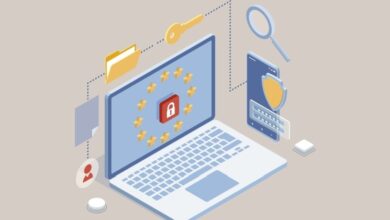Employee Engagement Programs For Employee Happiness


What Are Employee Engagement Programs?
All of us dream of a workplace where people thrive and enjoy doing their tasks without bad vibes and toxic behaviors. This is where employee engagement programs come into play to make that dream a reality. These are programs designed to help employees feel more connected to their work, colleagues, and the company’s objectives. The main goal is to make employees happier and more productive, which in turn helps the company become more profitable. Since you care about how your staffers feel and want your organization to contribute to their happiness, let’s examine some ideas for employee engagement programs that will benefit everyone involved.
10 Employee Engagement Program Ideas
1. Recognition And Rewards Program
It’s always nice to reward your employees for their performance when they reach a milestone or for something as simple as helping their peers. A pat on the back isn’t always enough; this is why you can create a rewards program that truly aligns with your company culture. You can choose from a variety of options, like gift cards for a shop or service they like, extra vacation days, or a post on the company’s social media profiles. Find out their preferences and go all out because their hard work is worth it.
2. Flexible Work Arrangements
Giving your workforce more control over when, where, and how they work does wonders for their engagement. Remote work, flexible schedules, job sharing, and even a short workweek can satisfy them significantly. Firstly, they have a better work-life balance, as they have more time to focus on their relationships and personal time. Then, they get rid of the stress of commuting without worrying about train delays or traffic. Lastly, they have autonomy over their schedule and workload and gain a sense that the company trusts them.
3. Professional Development Opportunities
One of the key benefits of professional development opportunities is that they can boost job satisfaction. When employees learn new skills and acquire new knowledge, they are likely to feel more confident and capable in their jobs, which can increase their sense of fulfillment and purpose. Plus, they are more motivated to use those skills and take on new challenges. This can result in increased productivity and performance, which can benefit both the employee and the organization.
4. Employee Wellness Programs
Employees need to stay healthy in order to perform at their best. Wellness programs can create an environment that fosters well-being and physical and mental health within the workplace. You can offer your employees gym memberships, organize regular yoga sessions in the meeting room, or invite professionals to talk about nutrition, fitness, and mental health. Your choice depends on your team’s needs and your budget, of course.
5. Team-Building Activities
A bonded team is vital for a high-performing workforce, as it sets the foundation for collaboration and smooth communication. To bring your team members together, the key is to choose activities that are both enjoyable and meaningful. For example, do a scavenger hunt in the park or the office to enhance their problem-solving skills. If you want to add a more adventurous element, organize a paintball match or a short hiking trip.
6. Feedback Channels
Employees need to know how they’re performing in real time. This is why you need to establish feedback channels between managers, employees, and their peers. From one-on-one meetings and anonymous surveys to team meetings and peer-to-peer reviews, you can always find a channel that resonates with your workforce’s preferences. Once you realize the importance of speaking up and sharing comments and insights with your team, you know that a feedback channel can contribute to a more productive team.
7. Employee Volunteer Opportunities
People want to know that their work is meaningful and contributes to the greater good. Show them that they can get involved in this by organizing volunteer events. For instance, you can take the whole company to clean a local beach or help at a homeless shelter. Similarly, give them the chance to volunteer for a cause near and dear to their hearts individually and on their own time. Overall, this will show that your organization makes a difference and instill a sense of pride among the workforce.
8. Appreciation Days
Appreciation days are small (or grand) celebrations on the premises dedicated to expressing gratitude for your team’s achievements and contributions. Your people will come into a decorated office, receive a thank-you note or gift, and celebrate their hard work with the rest of the company. You can make this a whole-day event or devote some hours off the workday to have fun with food, drinks, music, and conversations with your workforce, all while thanking them for everything they do.
9. Cross-Departmental Collaboration
By breaking the silo mentality, you can encourage employees from different departments to work on a common goal, like the company’s vision or a project that requires their expertise. Cross-departmental collaboration allows employees to share resources with their peers from other teams, collect their knowledge and experience, and complete tasks much faster, gaining confidence in their work. Additionally, joining forces results in more innovative ideas and plenty of solutions to common problems.
10. Social Events And Celebrations
Holidays like Christmas and Easter, birthdays, or special occasions like the birth of a child, marriage, or retirement among the workforce are worth celebrating. They give employees something to look forward to and boost their mood and, thus, their productivity. For example, a Secret Santa gift-exchanging event on Christmas or a baby shower for a pregnant employee goes a long way in showing your appreciation towards your staffers and fostering an emotional connection that hardly breaks.
How To Develop An Effective Employee Engagement Program
Understand Your Team
Listen to your employees and hear what they have to say about their needs. You need to gather information about their motivations, their day-to-day challenges, or what they enjoy at their job. You can get an idea through conversations, surveys, and meetings and use your employees’ opinions to create the perfect engagement program or a combination of them.
Set Goals
First, decide what you want to achieve with your program. For instance, is it to reduce turnover rates or increase productivity? Make your goals realistic and measurable, and set a time frame to keep track more easily. However, since those goals are based on your team’s suggestions, don’t forget to involve them in the goal-setting process, too.
Design Activities
Now, it’s time to put your surveys and goals into action. If your workforce feels that their tasks are getting mundane and you also need to boost their morale, choose fun activities like team sports or outings for lunch or dinner. On the other hand, if they express mental health concerns and there’s a need for productivity to increase, focus on meditation or therapy sessions provided by experts.
Clear Communication
After creating the program and setting your goals, you must communicate everything to your staffers. Start by highlighting your vision and mission and connecting them with the program’s objectives. Then, mention how important their contribution is to the activities and show them everything in detail. Remember, their participation isn’t mandatory, but it’s crucial that every single employee is aware of the program and what it entails, no matter how active they are.
Conclusion
Keeping your employees interested in their jobs is important to make sure they stick around for the long haul. Don’t forget to use technology, especially employee engagement software. It’ll help you keep track of important data, monitor your progress, and stay in control of your program’s performance based on various metrics. By using these tools, you can make your employee engagement initiatives more successful, boost productivity, and create a positive work environment.
Source link



